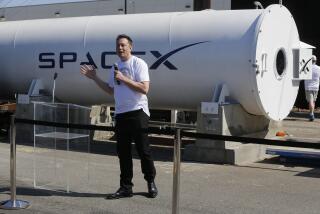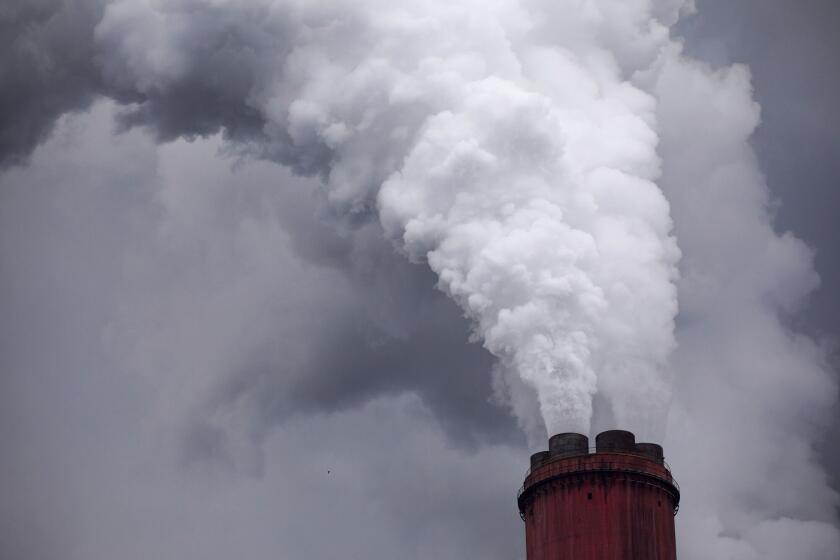Elon Musk’s Boring Co. raises $120 million in first outside investment
- Share via
Elon Musk’s Boring Co. has raised its first outside investment to fund development of tunnel-based transportation systems.
The company authorized the sale of $120 million in stock, according to a securities filing that was obtained by the Prime Unicorn Index, a company that tracks the performance of private U.S. companies, and reviewed by Bloomberg News. The investment is in addition to the $113 million the company raised last year.
“We are delighted to be an investor in Boring,” said Steve Jurvetson, a venture capitalist with Future Ventures and a director on the boards of Musk’s Tesla Inc. and Space Exploration Technologies Corp. “Boring is a great example of the disruptive playbook we look for.”
Boring’s best-known funding efforts involve less traditional methods including the sale of hats and flamethrowers, which raised $1 million and $10 million, respectively, for the business.
In May, Boring won its first commercial transportation contract, a $48.7-million mile-long project to shuttle visitors around the Las Vegas Convention Center. The project will provide an important test of whether it can really dig more cheaply than competitors and navigate the government bureaucracy involved in municipal projects.
Boring Co. has also built a test tunnel near its headquarters in Hawthorne. A hoped-for tunnel in Los Angeles was scuttled after opposition from neighborhood groups. In Chicago, a proposed tunnel’s future is in doubt because of the departure of its biggest supporter, former Mayor Rahm Emanuel. A potential project connecting Washington, D.C., and Baltimore is in the environmental review process.
Jurvetson said Boring’s latest investment was its first big fundraising effort beyond tapping into money from Musk and company insiders. A spokesman for Boring declined to comment.
Jurvetson, 52, is a longtime friend of Musk’s who has invested early in his companies, including Tesla and SpaceX. Formerly a venture capitalist at DFJ, he resigned from the firm in November 2017 amid allegations of harassment that he has denied. He returned to Tesla’s board from a leave of absence in April.
“The four largest tunnel companies in the U.S. were founded in the 1800s,” Jurvetson said. “Like the automotive and aerospace sectors, they haven’t faced a disruptive new entrant in their management’s collective lifetime.”
More to Read
Inside the business of entertainment
The Wide Shot brings you news, analysis and insights on everything from streaming wars to production — and what it all means for the future.
You may occasionally receive promotional content from the Los Angeles Times.










